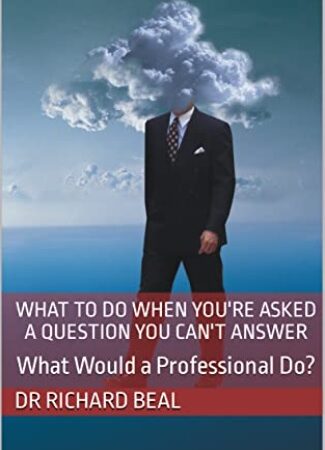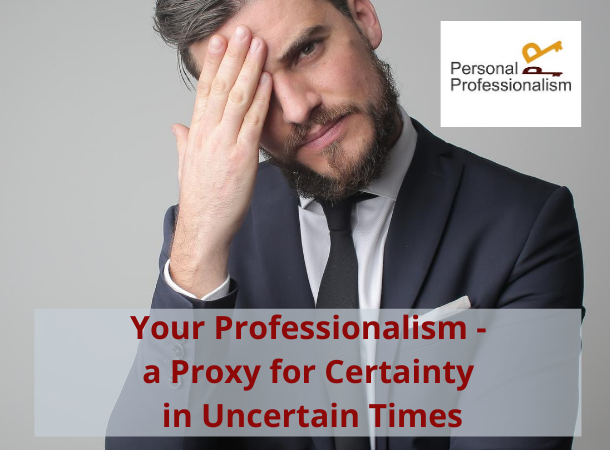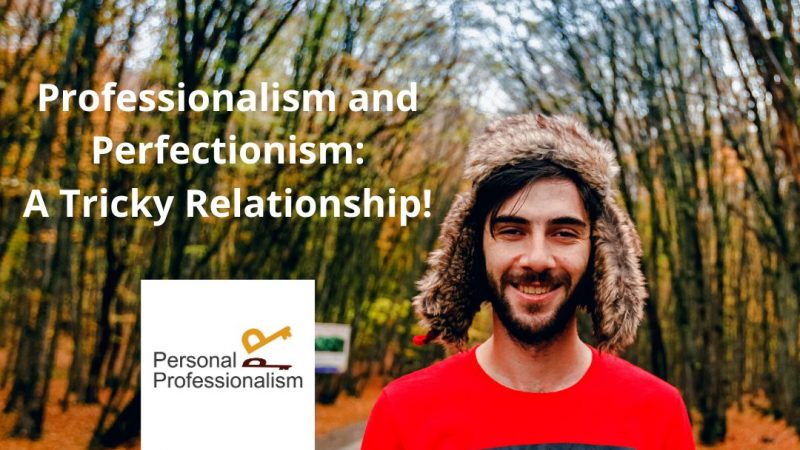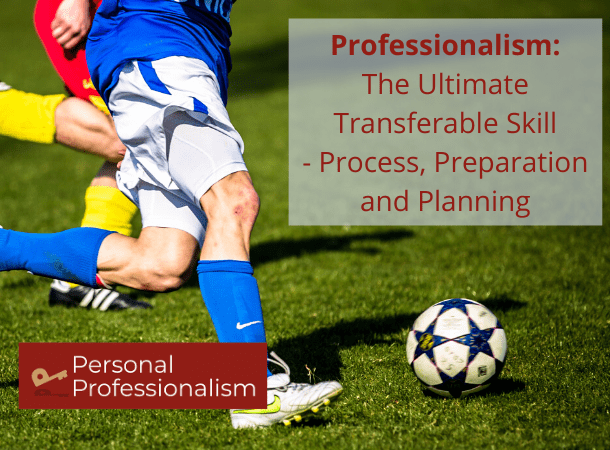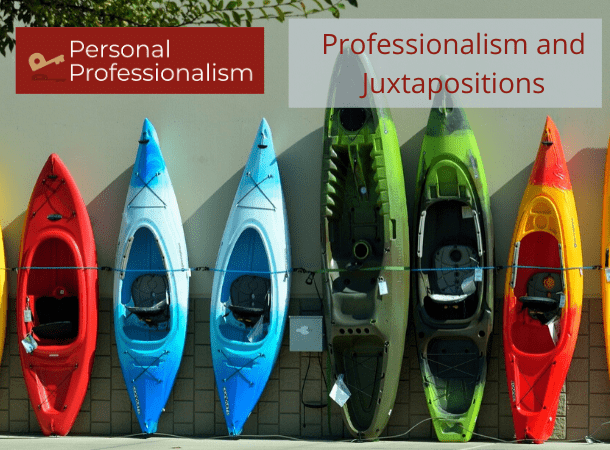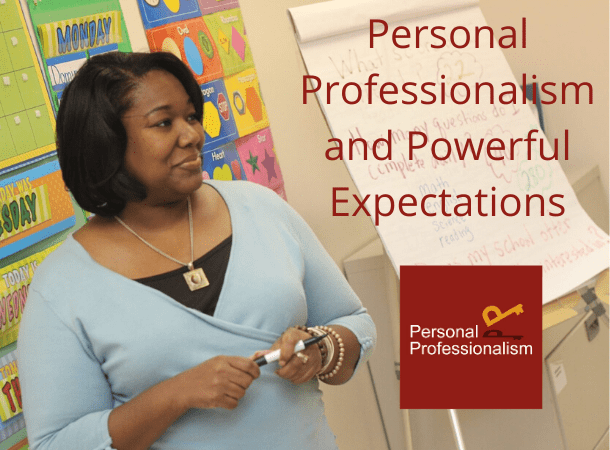Five actions we should take to avoid the pitfalls of the personal/professional overlap
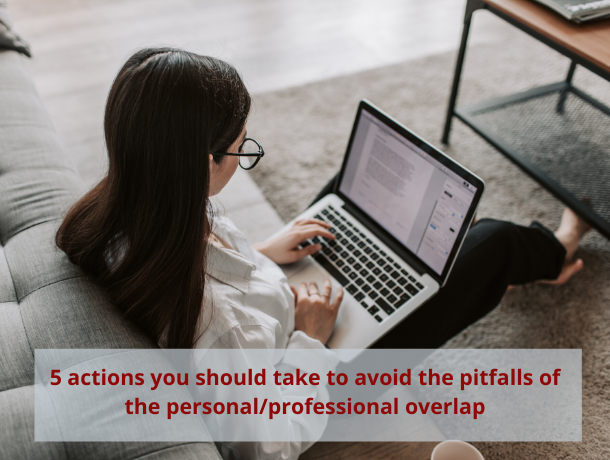
In early May 2020, a very senior health advisor to the UK government stood down from his job. The reason? It was because, in his capacity as a health advisor, he had advised the British public to self-isolate but then took the opposite action in his personal life.
Putting aside the politics of the situation, there is a very clear lesson about how closely aligned our personal and working selves are, regardless of how much we try to keep them separate.
His personal actions had brutal professional consequences.
Gone are the (alleged!) ‘good old days’ when your personal life only intruded on your working life if you turned up to work with a hangover or embarrassed yourself at the office Christmas Party – I’m not speaking from personal experience here!
Ease of access to information about our personal lives means that, more than ever before, personal actions can impact our working lives, negatively or positively. Via Facebook, Twitter and LinkedIn, our personal lives, political opinions and even favourite foods are visible for all to see.
And on top of that, we are getting glimpses of our colleagues’ personal lives in our tele-meetings. In some cases, there very interesting glimpses indeed!
Young people seem to be aware of this. A middle school student confided that she was terrified of uploading her hobby video to YouTube in case there was something in the video that would offend someone.
There were two reasons. She desperately wanted to be respectful and definitely NOT offend anyone.
Her second reason surprised me most, although perhaps it ought not to have.
Her terror was that she did not want to affect her life plans of attending a top university and moving on to meaningful employment. She felt that future university and work recruiters would be able to look back at her teenage work and see all the “awful, crushingly offensive video that she had maliciously” uploaded.
In reality, it was none of those things.
One could only be inspired and in no way offended by her amazingly creative and interesting work.
And anyway, I’m usually a ‘publish and be damned’ kind of guy.
But, wow, it did make me think. Even at such a young age, she was aware of the impact that actions in her personal life could potentially have on the course of her future working life.
There are hundreds of examples of politicians, pro sports people and actors who go to extreme lengths to protect their private lives from public scrutiny for fear of the effect of impact on their career.
Our personal and working ‘selves’ feed each other and so can’t be completely separated. Our ‘working selves’ provide income so that we can feed, clothe and house ourselves and our families; our ‘personal selves’ bring our energy, skills, interests and intellect to our work.
So, what to do?
Whether you ‘work to live’ or ‘live to work’, you need to protect your personal professional reputation. Here are two underlying assumptions to consider that inform five actions that you can take.
The two assumptions are:
- Firstly, we are one person who has multiple expressions. We each possess unique characteristics in a unique combination. We bring our own energy, intellect, motivations, life experiences and life principles both to our work and to our personal life expressions, such as family, social and community. It is the expression of these that differ in different part of our lives. Compared with, say, our family or social life, we might do the following differently at work while still staying consistent with our life principles:
- Use more formal language
- Behave and dress more formally
- Set formal, objective expectations of those around us
- Rely on organisational structures that are neither present nor needed at home
- Secondly, work-role purpose. The interpersonal relationships in our working lives have a different and unique purpose to others in our lives. Compared with family, social and community relationships, the work relationship usually exists for a commercial or organisational reason. The work relationship exists to fulfil a commercial or organisational purpose and there is an expectation of reciprocity, most commonly of payment or other objective reward
Which leads to the actions we should take to avoid the pitfalls of the personal/professional overlap. Here are the top five:
1. Living your principles.
If our life principles are common to our working and private lives, then not ‘living’ them through our words and deeds in our personal lives can undermine our professional reputation.
I once declined to do business with a man who had boasted on the one hand of being honourable and on the other of cheating on his wife. He told me this during our very first conversation.
I felt that if he did not honour personal commitments, he is less likely to honour professional commitments.
Be explicitly aware of the principles in your life through active reflection and live consistently with them. Ideally, align yourself with employers and clients whose principles reflect your own.
2. Always do what you said you would do.
This applies to personal and working lives. As per the story above about the UK health advisor who resigned because of his personal actions, if you make a public statement, you really must ‘live’ that statement in your personal and professional actions.
Not doing so leads to understandable criticisms that:
- You did not really believe the advice you gave, which can suggest that your motivations were not sincere
- Your future advice cannot be trusted to be anything but self-serving
- You do not honour the expectations placed on you and the role you hold
Any of these criticisms will severely weaken your professional reputation!
3. Be aware of prevailing social norms.
You do not have to share social norms, but you must be aware of them and be prepared to adjust accordingly.
This is brought to life for many when they work in a new culture. Not understanding social norms such as how respect is exhibited can have an impact on your reputation for being someone with whom people can work.
I once accidentally attempted to eat something in daylight hours during Ramadan in a Muslim country – thankfully I was stopped by a colleague before I could cause offence. That personal action would definitely have undermined my professional standing by (completely innocently and inadvertently) performing a socially unacceptable action in front of people I considered respected colleagues and dear friends; these were people I liked and who liked me and in no way would I have wanted to insult them or their home culture
4. Be aware of your social media profile.
This is simply way too obvious to mention.
BUT…! Judging by the number of stories I read about it, perhaps it’s not obvious at all.
Be aware that your profile showing you as a committed ‘party animal’ is available for everyone to see. And I do mean everyone.
Last year, a young graduate famously lost her internship at the USA’s NASA. In her understandable excitement, she used an inappropriate word in a Tweet announcing her success at landing the internship. Someone she did not know responded with the single word ‘language’, by which he meant to advise her not to use such language as NASA would find it unprofessional. Unfortunately, her response to him was especially profane.
Even more unfortunately, NASA saw the Twitter exchange and revoked her internship. It’s unclear whether the internship was subsequently reinstated (I hope so!) but at best she put herself in an unnecessary situation by her personal-life actions.
The upside of social media presence is, of course, that there is potential for employers to know more about who they are employing. Cynical, but true.
The downside is that anything we do publicly, no matter how well-intentioned or innocent, is subject to public judgement.
5. Always assume that criticism is professional, not personal – even if it’s not!
This advice is a little esoteric.
If you are confident that your principles are robust, be brave, be yourself.
By doing so, you will be inclined to respond to the criticism from a professional perspective, not a personal one. And this is vitally important.
Develop a thick skin. Always assume that criticism is professional and not personal (even if that’s not true!) and take pride in acting in a way that you believe is correct and appropriate in order to fulfil the purpose of your work-role.
Remember that being professional is not about being nice, it’s about ‘being the person you need to be’ in order to do your job. Always be objective, ethical and approachable but when you need to be nice, be nice; when you need to be tough, be tough.
Do be prepared for negativity and trolling. There will be people who will find any reason to criticise you for being the person you need to be in your work-role. This might be because they sincerely disagree with you and your moral compass; or because they simply like trolling and you are their target.
If you have performed honourably, within ethical bounds and using the most appropriate means, then criticism can only ever be subjective and easily rebutted.

